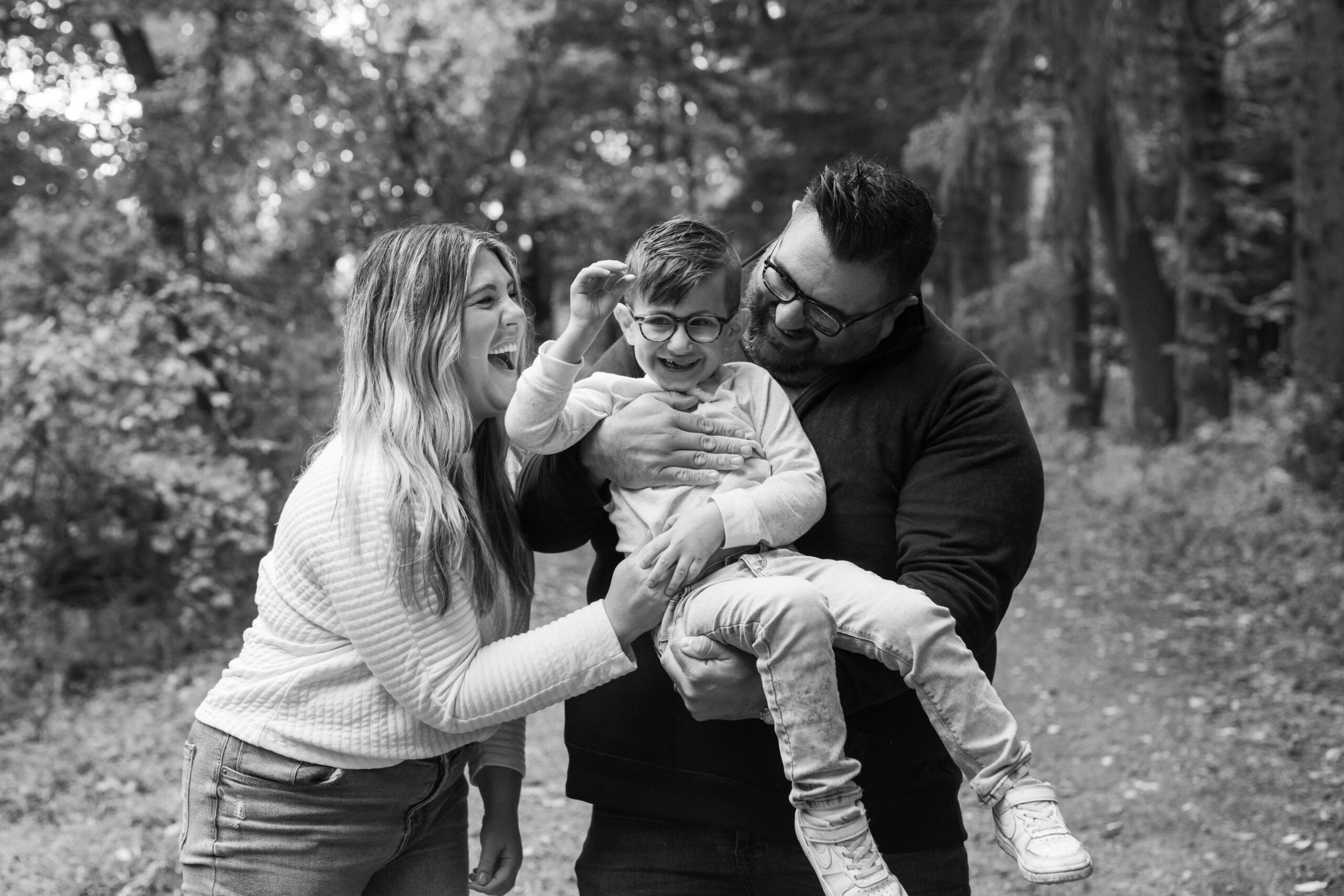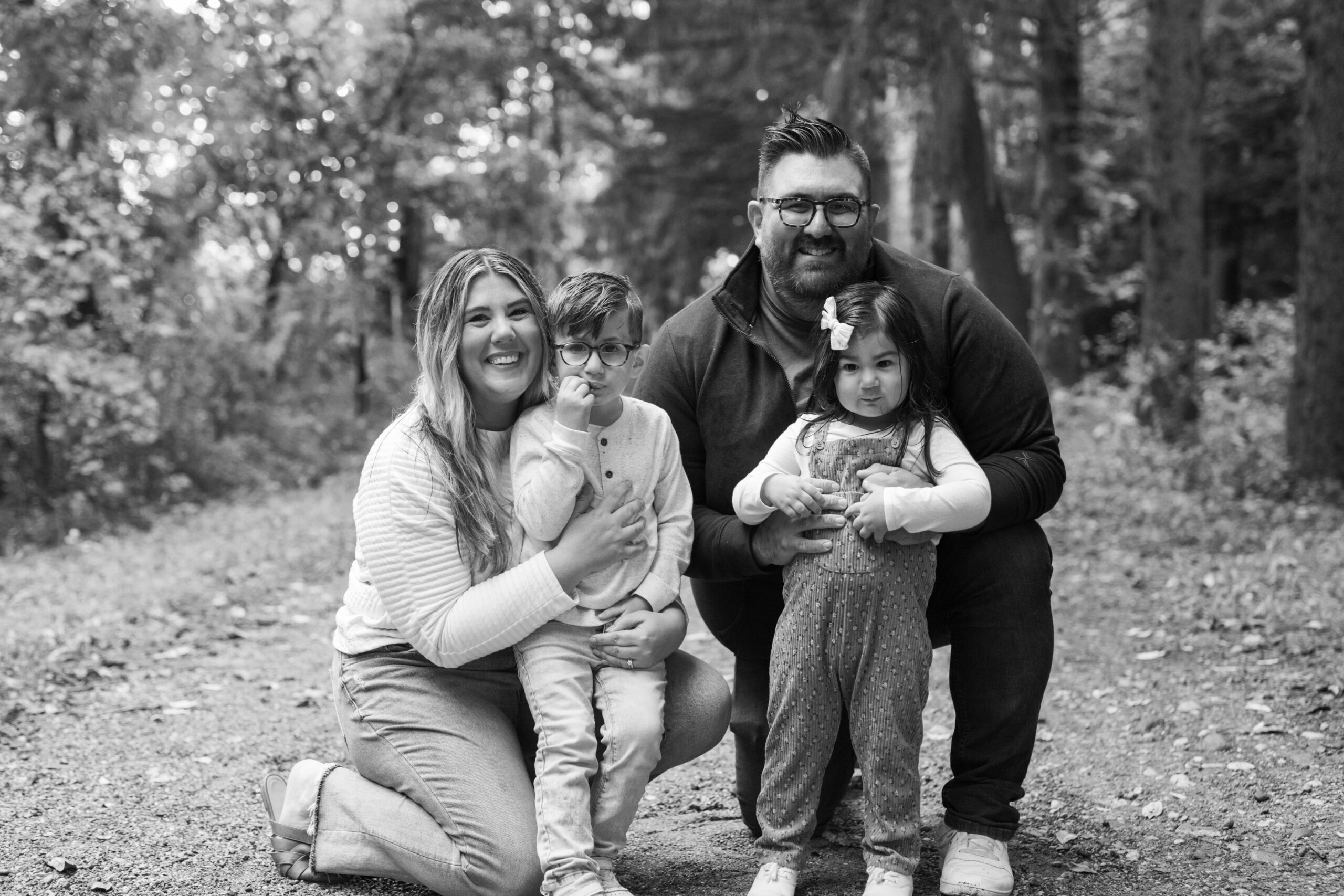I read this incredibly challenging analogy the other day. It went like this: Make accessibility your baseline. What does this mean?
Imagine this: The custodian is rushing to shovel the snow on the stairs before students arrive so that when they do, they’ll be able to walk up the stairs and enter the building. The custodian finally finishes up, right on time for the bell. Students begin walking up the stairs to enter the building, but there are several students who use wheelchairs who aren’t able to get up the stairs. The ramp was still covered in snow. If the custodian had shoveled the ramp FIRST, all students would have been able to enter the building (even if the stairs didn’t get shoveled).
No one is harmed from too many supports: visuals, flexible seating, opportunities for motor breaks, Augmentative and Alternative Communication (AAC), etc. However, there ARE students who will miss out from LACK of supports.

My son Jaxon has an extremely rare genetic disorder called KDM5C. He is nonverbal and uses an AAC device for communication. He has cerebral palsy, and he has Autism. He is cognitively impaired and can have intense behaviors at times. He is a beautiful boy who laughs and loves life, but also struggles to do things that come naturally for most six-year-olds. He is a student that would miss out if we didn’t prioritize equity. Jax is why I choose to advocate.
I’m grateful for the person I am because of J’s disability.
It has deepened my empathy. My endurance. My understanding of equity and inclusion. My grit and tenacity. Truly, the way I view the world. I. Am. Grateful. But I absolutely hate what we had to do to get here. I hate the struggles that he must face to better my understanding of disability.
Constantly, I feel joy and grief battling for space in my mind. I never knew they could coexist like this. Unconditional true love and heartbreak. Proud of what we’ve overcome, yet scared of the future. High-fiving technology for AAC devices, but devastated that verbal communication is so difficult for him. Grateful that I understand his gestures and utterances, but terrified of who will understand when I’m gone. Feeling included when our friends invite us to neurotypical birthday parties, but frustrated that it always highlights how different our life is. Eager to advocate and move the needle, but really exhausted from all of it. Loving the progress we have made in six years, but still grieving what could have been. Not relating when I’m with my best friends but craving any kind of community. Pride and dignity. Faith and skepticism. It’s all of it.
Disability parents are some of the strongest people I know. They never asked to be in this category of parenting, but every day they continue to show up.
My desire is to bridge the gap between our world and yours, with two simple, yet profound actions you can take: be curious and be accommodating.
Be Curious
Curiosity is the bridge that connects unfamiliarity with understanding. When it comes to disabilities, the manner of your curiosity can make all the difference. It’s one thing to wonder about the limitations a disability might bring, but it’s another, more compassionate thing, to seek understanding about how to connect despite them.
For instance, instead of asking, “Why can’t Jaxon talk?” consider asking, “How can I best communicate with Jaxon?” This shift in perspective doesn’t just make me, as a parent, feel supported–it makes Jaxon feel seen and valued. Every child deserves to feel known, to be acknowledged for who they are–not just for the challenges they face.
Be Accommodating
Inclusivity isn’t about grand gestures; often, it’s the smallest accommodations that speak the loudest. If you’re hosting an event, something as simple as a thoughtful placement of food can alleviate the stress for a family with a child who has special needs. You don’t have to redesign your entire setting, but consider what minor adjustments could prevent self-exclusion.
For instance, a message saying, “I’ve set aside a quiet space for Jaxon if he needs a break from the party,” can be a beacon of relief. This kind of empathy–this willingness to make life a little easier for those already carrying heavy loads–can transform an ordinary space into a haven of comfort and understanding. It expresses, “I truly see you”.

Incorporating these actions into your life doesn’t just help families like mine; it enriches your own experience of the world.
It’s about taking the empathy you have and implementing it in a tangible way. Imagine a world where curiosity blooms into rich conversations, where accommodations are not exceptions but norms. This is a place where children like Jaxon aren’t just included, but they thrive; where the sound of “mama” is celebrated, even if they’re six years old.
It’s a world where every birthday party, every community event, every shared space is a welcome mat rolled out with love and consideration. If more of us take the time to be genuinely curious and make those small, thoughtful accommodations, we create ripples of change that expand into waves of inclusion, affecting countless lives.
This vision is not just a dream—it’s a possibility that begins with our actions today. The hard days are rarely ever hard because of Jaxon’s disability. They’re hard because the world/our culture doesn’t do equity or inclusion well. But I do have faith in humanity, and I am confident we can get there, together.
–Guest post submission written by Taylor Leal










